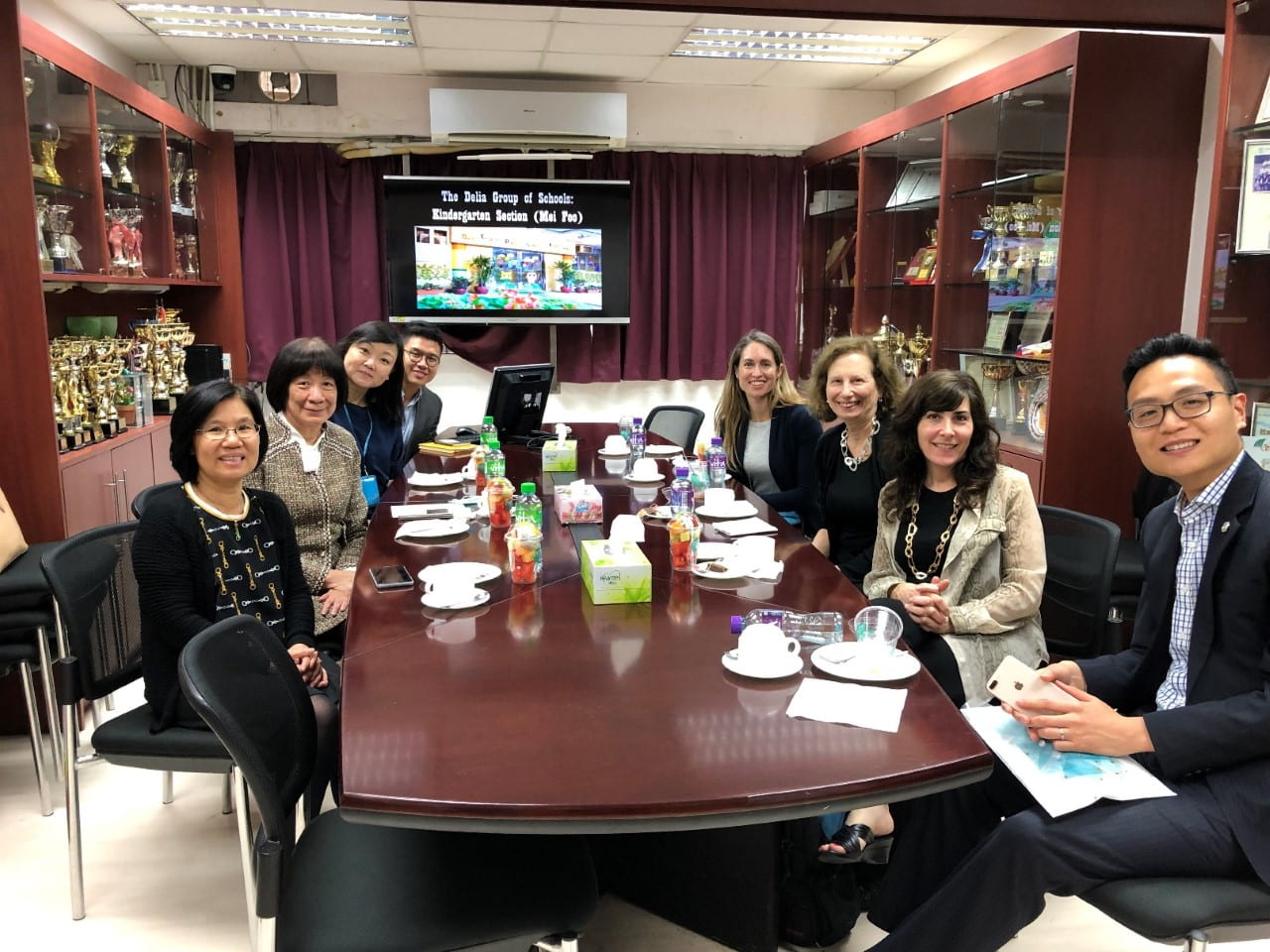Conference hones in on early learning environment
Science of Learning researchers and colleagues in Hong Kong held a conference on the cultural and institutional context of early childhood learning, hosted by the University of Chicago Campus in Hong Kong.
Learning in the early years is a process that is widely acknowledged to be critical to academic achievement as well as a myriad other life outcomes. Yet it remains a developmental stage where learning and achievement gaps between children of differing social status open quickly and are difficult to close once they emerge, leading to persistent inequality in education and employment opportunities. In order to elucidate new strategies for addressing these inequalities, the University of Chicago Center in Hong Kong, aided by generous funding from the Hong Kong Jockey Club, recently hosted a conference which aimed to arrive at a better understanding of how the two most influential settings for children’s early learning—the home and the school—shape the emotional and cognitive development of young children. Conference organizers Susan Levine, Lisa Rosen, and Lindsey Richland hoped in particular that an exchange of perspectives between researchers focused on varying educational contexts in both Hong Kong and the United States would allow participants to gain a more sensitive eye for the role of culture in these processes.

The conference, which took place March 28-29, 2019 at the University of Chicago Francis and Rose Yuen Campus in Hong Kong, featured talks and panel discussions led by researchers from Hong Kong and the United States.. Keynote Speakers included Nirmala Rao, a Professor at the University of Hong Kong, and Kai-ming Cheng, Professor Emeritus at the University of Hong Kong. In addition, organizer Susan Levine gave a public lecture and researchers toured local schools.
Other sessions included paper presentations and panel discussion on a variety of topics related to early childhood learning and reducing educational inequality.
In one session, researchers analyzed the diverse processes involved in learning at the very earliest developmental stages, comparing changing cultural attitudes towards the role of play in early child development and suggesting ways to educate parents to take advantage of the sensitivity of children’s early experiences to cultivate so-called ‘scaffold skills’ foundational to school readiness. A second session session focused more pointedly on how parental attitudes affect child development, exploring for example the pragmatic concerns underlying attitudes towards academic achievement among Asian immigrant communities in both Hong Kong and New York. Other participants discussed the difficult task of preparing children for math education in grade school, suggesting methods for reducing the often debilitating anxiety that both children and parents can feel toward the subject. The final session of the conference’s first day focused on the development of interventions aimed at improving literacy and math skills of young children, especially those made vulnerable to falling behind by conditions such as dyslexia, or by not natively speaking the school’s primary instruction language.


The second day of the conference focused primarily on strategies for addressing the divergences in early child development and learning that become visible alarmingly quickly in children’s lives. One paper argued for the importance of investment in young children’s physical and mental health for their subsequent achievement in school, emphasizing an often disappointing lack of integration between education, health, and social services. A second analyzed attempts to support acquisition of Chinese skills among children of South Asian immigrants in Hong Kong. Other presentations laid out new models of school- and classroom-level organization that have shown potential in allowing teachers and administrators to iteratively tailor instruction and assessment to students’ abilities, thereby reducing inequality between students of different socioeconomic status.
While many social and cultural differences separate the learning experiences of young children in Hong Kong and in U.S. cities, one major outcome of this conference was the discovery by researchers of many previously-neglected similarities and avenues for further comparative research, such as the presence in both regions of large immigrant populations for whom language mastery can pose a significant threat to educational success.
As a result of these discoveries, and of the collegial relations between Hong Kong and Chicago-based researchers developed during the conference, participants Guanglei Hong, Patrick Ip, Susan Levine, Stephen Raudenbush (among others) have begun preliminary plans for the conducting of a series of pilot studies to address the key research questions about cross-cultural differences in neighborhood, family and school influences on child development, behavior and health.
Learn more about the University of Chicago Campus in Hong Kong at https://www.uchicago.hk/.


